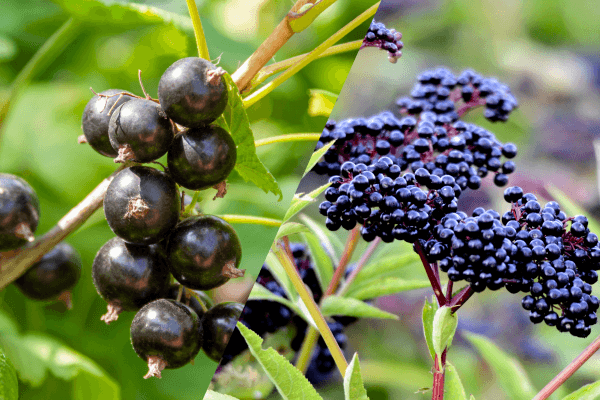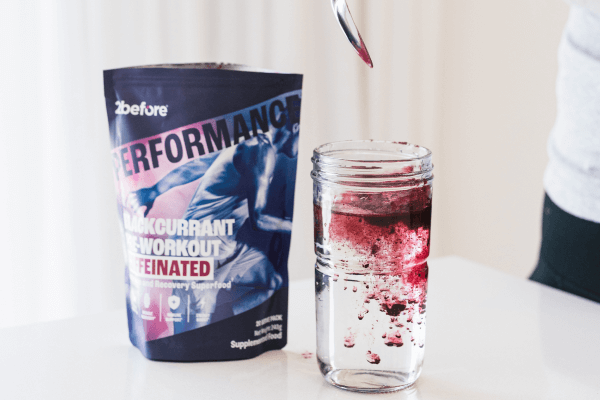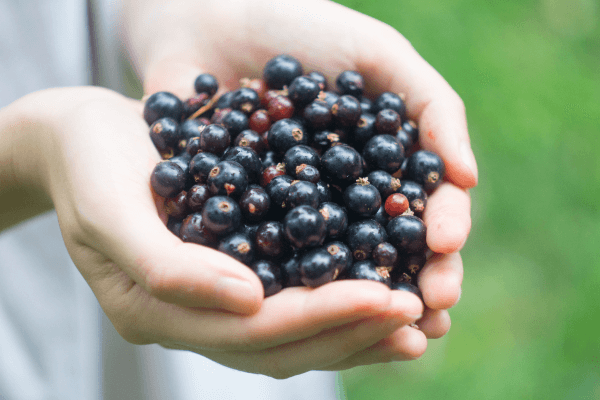Berries of all kinds have long been studied in scientific circles for their potential health benefits, largely thanks to their concentration of polyphenols, compounds that help the body manage oxidative stress. This antioxidant activity is one reason berries have become a regular part of so many people's diets, whether blended into a pre-workout powder or simply enjoyed as a snack.
One of the common debates in the berry world is black currant vs elderberry. Both bring unique strengths, but which one makes more sense for your routine? Blackcurrants, especially those grown in New Zealand, are valued for their unusually high levels of anthocyanins. At 2before, our blackcurrant powder is made exclusively from NZ-grown berries to better support performance and wellness goals. Elderberries, meanwhile, are often found in syrups and supplements that focus on immune support. If you're weighing up the two, here's what to know before you decide.
Nutritional Profiles of Black Currant and Elderberry
Black currants and elderberries are both packed with nutrients and natural compounds that help support overall wellness. New Zealand-grown black currants, in particular, stand out for their high levels of anthocyanins and essential black currant vitamins such as vitamin C. These compounds provide powerful antioxidant activity and may help support joint comfort and muscle recovery, which makes black currants a trusted ingredient in supplements for athletes and active individuals.
Elderberries share many of the same benefits but have a slightly different focus. While they also contain anthocyanins and other polyphenols that contribute to antioxidant activity, these berries are often valued for supporting the body's natural immune function and overall resilience. Thanks to these elderberry health properties, they're more commonly used in supplements designed to support immune function.
Comparing Health Benefits
Both black currants and elderberries contain a variety of nutrients and bioactive compounds that contribute to a healthy diet. They do share some similar properties, but each berry has unique characteristics that make it particularly suited to certain health goals and dietary needs.
1. Antioxidant Properties
Both black currants and elderberries are packed with antioxidants, compounds that help the body manage oxidative stress and support healthy cellular function. Black currants contain particularly high levels of anthocyanins, antioxidants that help support vascular health. This makes them valuable for individuals looking to enhance circulation and overall cardiovascular wellness. Elderberries offer a comparable antioxidant profile with anthocyanins and flavonoids, helping to support the body's natural defenses against oxidative stress. This can help those seeking to strengthen their body's natural resilience.
2. Immune System Support
In addition to their high anthocyanin content, black currants contain high doses of vitamin C, which supports natural immune function. Vitamin C plays a key role in maintaining healthy immune responses and supports the body's natural defenses. Elderberries, which also contain antioxidants, are valued for their potential to support immune health. Although neither berry can outright prevent illness, regularly including them in a balanced diet helps maintain immune resilience.
3. Anti-inflammatory Effects
The anthocyanins in black currants have been clinically studied for their potential role in supporting healthy inflammatory responses. This may be particularly relevant for individuals seeking nutritional support around physical activity, as these compounds can help the body respond to exercise-related oxidative stress. Likewise, elderberries contain polyphenols with antioxidant activity that may help support the body's natural inflammatory processes.
4. Culinary Uses
Black currants have a tart, rich flavor that works well in powders, smoothies, jams, and baked goods. Their concentrated forms, such as powders, make it easy to add them to daily nutrition routines. Elderberries, on the other hand, are more typically used in syrups, jams, and other cooked or processed preparations, as raw elderberries contain compounds that should not be consumed uncooked. Both berries offer versatile ways to incorporate nutrient-dense fruits into your diet.
5. Practical Integration
Both blackcurrants and elderberries can fit easily into a balanced routine, offering nutrients and antioxidants that support everyday wellness. Black currant powder, for example, mixes seamlessly into smoothies or oatmeal, delivering a concentrated source of anthocyanins and other bioactive compounds. With 2before's single-serve sachets, it's even simpler to get a consistent dose each day without the guesswork. Elderberries, on the other hand, are more often enjoyed in prepared forms like syrups or supplements, making them another convenient option for regular use. Whichever you choose, weaving these berries into your daily habits can help you enjoy their natural benefits more consistently.
Which Berry Makes the Most Sense for Your Routine?
When deciding between black currants and elderberries, it helps to consider their unique strengths. Black currants offer broader potential, supporting both active routines and overall wellness with their antioxidant-rich profile. Elderberries, while also rich in antioxidants and polyphenols, are most often used to support immune function. If you're looking for a versatile option that fits both your workouts and daily nutrition, many find black currants to be a particularly well-rounded choice.
Ultimately, the black currant vs elderberry choice comes down to your goals. Elderberry is often used for seasonal immune support, while blackcurrant offers a more versatile option that supports both everyday wellness and active lifestyles. If blackcurrant feels like the better fit, 2before makes it easy with pre-workout powders crafted from New Zealand-grown berries. Available in both caffeinated and caffeine-free options, they're designed to fit seamlessly into your daily routine.



